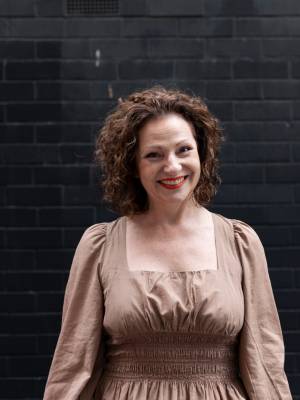Dr Toni Reilly explains complicated and delayed grief

None of us can predict how we will react in the wake of losing a loved one. Grief is a natural response to loss, however the ways in which it manifests differ from person to person. For some, grieving may be powerful yet contained within a short period of time. For others, the overwhelming emotions associated with loss may not ease after months or even years. And for some, the grieving period may not come on until much later, once the immediate aftermath of arranging a funeral and completing all the practical and legal sides of death are dealt with – grieving may come months down the track or even after the one-year anniversary of losing your loved one.
The reality is that there is no set time frame for how long grief will last. No matter your individual circumstances, there are strategies for learning how to cope with complicated or delayed grief, as Dr Toni Reilly, an Afterlife Specialist and bestselling author shares.
Understanding the stages of grief
When it comes to the process of grief, there are no limits to the depth of feelings, no set rules of expression nor a set timeframe to move beyond the final stage. According to Dr Reilly, grieving is a self-absorbed, natural process that has to be lived through, and it’s the only way to get through this pivotal life experience.
“You will come through it and when you do, you will be different – wiser and more compassionate,” Dr Reilly explains.
“But the stages [of grief] are not a cycle; they bounce from one to another and differ from person to person,” she adds.
You may have heard about the different stages of grief. But how do you know where you are along the journey? Dr Reilly says there are some tell-tale signs that you in a particular grief stage:
- Denial: You tell yourself that everything is okay when it’s not.
- Anger: You keep asking questions like “why me? It’s not fair!”
- Bargaining: You believe that if you just do this one thing then maybe the pain will go away.
- Depression: You are feeling down and not wanting to participate. This is also referred to as deep rest because it facilitates imperative reflection time.
- Acceptance: You realise that you can’t change what has happened, so now it’s time to figure out how to move forward.
- Meaning: You embrace self-awareness and start exploring what has been learned from the experience.
What is complicated grief?
Also called prolonged grief disorder, complicated grief tends to happen when you feel strong grieving emotions for an extended period of time after losing a loved one – an especially common struggle for those who’ve experienced a sudden loss.
Many people with complicated grief may find it hard to do regular tasks like go to work or spend time with others. They might also be unable to stop thinking about the person who passed away and have trouble accepting the loss.
It’s common – and completely understandable – to experience feelings of anger or numbness, and to avoid being with those you care about most. That’s why getting support from a professional, like a grief counsellor or support group, can help you start opening up about your feelings and find effective ways to cope with your loss.
What is delayed grief?
Delayed grief is what happens when you don’t immediately experience strong feelings of loss when a loved one passes away. Instead, these emotions come on at later stages, sometimes several weeks or months after the loss. There are many reasons why this might happen – from being too busy dealing with other things, or not being able to fully comprehend the loss at first.
“Everyone copes with grief in their way,” Dr Reilly says, “Delayed grief reflects how processing grief is an individual experience. Some busy themselves with life and grieve later when they slow down and process what has happened. There is no right or wrong way of coping – the process forms part of the human experience.”
Strategies for dealing with delayed or complicated grief
If you are struggling with grief – whether it’s complicated or delayed – there are small things you can start doing today to help yourself.
1. Embrace your emotions
Dr Reilly says that one of the biggest – and often hardest – steps in coming to terms with your grief is embracing your emotions.
“Feeling emotions is critical to recovery, as trying to deal with emotions with logic does not work,” she says. “Talk to a trusted friend, counsellor or medium to support you through grief.”
2. Memorialise in a positive way
Making meaningful tributes or celebrating the life of a lost loved one can help you overcome complicated or delayed grief. By focusing on positive memories and acknowledging the impact the person made to your life, you may find solace and a sense of closure.
Dr Reilly suggests that positive memories are the best way to keep your loved one in your thoughts.
“When remembering your loved one, keep something that shows them at their best close to your heart, like your favourite memory or quirk about them,” she says.
Creating lasting memorials, setting up commemorative events on an anniversary or simply getting together with loved ones to talk about them can provide a healthy outlet for your grief. These positive expressions can be a constructive way to honour the person who passed away and start the healing process.
3. Create healing rituals
Everyone will have different rituals that are important for their own healing – from commemorating special anniversaries to doing activities that your loved one enjoyed, to supporting causes and charities that were close to their heart. Building these healing practices into your everyday life can help you find comfort and meaning in the face of your loss.
Dr Reilly also suggests cultivating your own unique healing rituals which will help to keep you grounded and being open to signs from the universe that your loved ones are okay and close to you in spirit, for example their favourite song playing on the radio, being visited by their favourite animal or sighting something that reminds you of happy times you’ve shared with them.
“Talk in your mind or out loud to your loved ones. They can hear you. Meditate or relax and ask for a sign and you will get one.”
Think of healing rituals as a structured way to process your loss, especially if you’ve been struggling to cope with the challenges of complicated or delayed grief.
Reach out for help
No matter where you are along your grief journey, know that seeking support can ease the burden of emotions. Professional grief counsellors, support groups, and friends and family can be a sounding board for what you are feeling. Simply knowing that this type of help is out there can get you to reach out and begin the healing process during a very difficult time.
The Australian Government’s Griefline service also provides free and confidential counselling and support to people experiencing grief and loss across Australia – inclusive of remote, regional, rural, and metropolitan areas. Call them on 1300 845 745.
Dr Reilly also suggests a few additional options which might be useful to some people, including: “If you feel you cannot endure the emotions, find a grief counsellor. For less clinical assistance, a spiritual [guide] can bring immense grief.”
Seek out a support group or grief counselling when you need it
If you want to start building a support network for your grief, speak to your doctor about specialists or search online for local support groups. Your local state or territory government may also have support resources in place to help guide you. Many organisations also offer virtual counselling services if you are not ready for face-to-face interactions.
Reflecting on your life and planning ahead
Losing a loved one is an incredibly difficult part of all our lives. Your grief may manifest in ways you don’t expect, but having strategies in place can make the journey a little less overwhelming.
This may also be a time when you start reflecting on your own life. Funeral insurance could help ease the financial burden on your family in the event of your passing. Request a quote with Real Funeral Insurance today to find out which level of cover could suit you and your family.
19 Apr 2024

Dr Toni Reilly
Afterlife Specialist and Bestselling Author
Dr Toni Reilly is Australia’s foremost past life specialist. She is the best-selling author of AWAKE The Purpose of Life and Why You Are Here. She has guided thousands of through the grieving process for therapy and personal development. Toni trained under renowned psychiatrist Dr Brian Weiss in New York, and at Arthur Findlay College in London. As founder of Toni Reilly Institute, she developed honed spiritual psychology over two decades of extensive observation and research. Her Doctorate of Divinity supports her programs and teachings.